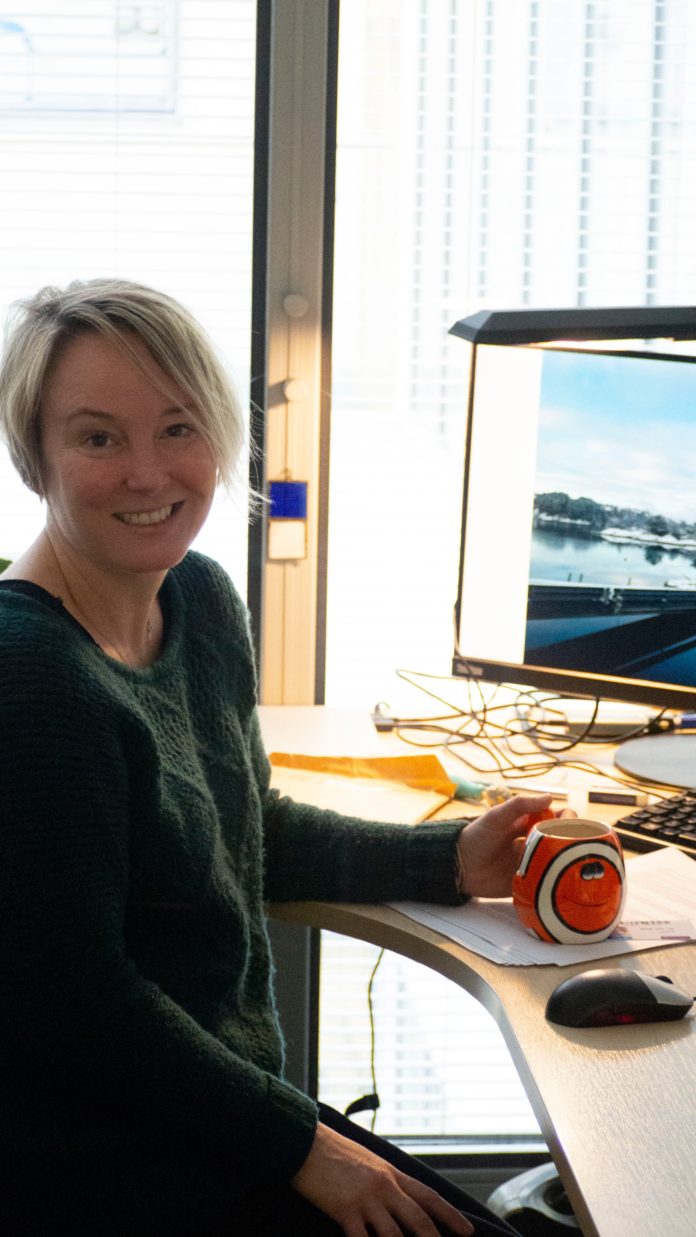Zoology and a fascination with fish might not seem like the ingredients for a British Heart Foundation (BHF) research project, but Dr Holly Shiels at the University of Manchester has taken a very different route into her career as a cardiovascular research scientist.
“I studied biology and zoology for my undergraduate degree. During this I became focused on cardiac physiology – looking at how the heart works. Later, I continued research in this area, completing a master’s and PhD. It was through this research that I became interested in fish hearts, in particular strong active fish such as trout, salmon and ocean predators like swordfish and tuna.”
Holly’s PhD focused on understanding how fish hearts could withstand the huge temperature, pressure and oxygen-level changes they undergo. Because fish are cold-blooded, their body temperatures change depending on their environment, and so unlike humans, their hearts have to be able to keep beating even when they are very cold.
As an expert in the hearts of marine species, Holly was brought in by the US government following the Deepwater Horizon oil spill in 2010.
“I helped to lead a team of people from Manchester and California to look at the effects of the toxicity of the Deepwater Horizon oil spill on fish hearts. We looked at what was in the oil and why this was toxic to marine species.
“The toxins released from the oil were affecting the two major functions of the heart – the electrical activity, which regulates the beating of the heart, and the muscular strength which is how a heart pushes blood around the body.
“We discovered that some of the key causes of these issues were polyaromatic hydrocarbons, which are released when crude oil is weathered, or churned up, by the water. So whilst the oil is toxic to begin with – it gets even more toxic to the heart specifically as time goes on and it is mixed up by the waves.
“When I presented this work at a conference in Dublin, one of my colleagues from Bristol, Prof Jules Hancox put the idea to me that actually the impact of these substances might be similar in mammal hearts, including human hearts, and that’s what led Jules and me to apply for this grant from the British Heart Foundation.”
The premise of Holly’s BHF research project is that the components of crude oil that are released following an oil spill, are the same components that we see in the combustion of fossil fuels, in car exhaust or from a coal power plant, for example. Although fish absorb the toxins through their gills, and for humans and other animals the toxins are taken in by breathing polluted air, the impacts on their cardiovascular health are very similar. The team have hypothesised that in both cases the toxins released are detrimental to the heart, and they think that all vertebrates (animals like humans that have an internal skeleton) are negatively impacted by oil-based pollution. This BHF project is looking at the specific causes and effects that these have on hearts.
Holly’s work is important because it could help to drive more understanding of the effects of air pollution, and how to mitigate these.
“With this research project, we hope to fully understand what makes these compounds so toxic to the heart. Air pollution is made up of so many different compounds. Different fuels can release different pollutants into the environment, so with this research we will know which toxins are more or less dangerous for human heart health.
“This could really help to support air pollution control because we could say which pollutants were the most damaging and should be avoided or reduced. We will also be able to understand the precise mechanisms behind the toxicity, both on the electrical activity and how effectively the heart pumps.
“We know from existing evidence that people that already have a heart condition are more susceptible to health incidents – like problems with their heart rhythms or chest pain – when there are spikes in air pollution, so being able to figure out the mechanisms of why these incidents happen, should be really helpful to patients. For instance patients with certain conditions may be more susceptible to the effects of air pollution, so we could advise them to avoid going outside when levels are very high.”
Almost two-thirds of BHF-funded PhD students are female, but women are vastly underrepresented in more senior cardiovascular research roles. Holly’s particular area of study is one that in her own words “might not be everybody’s cup of tea” but it has led her to some incredible locations, including Hawaii and Norway.
To help retain women in cardiovascular science and stem the loss of this research talent, the BHF promotes flexible working practices on all of its funding schemes and provides the resources needed to facilitate continuity of research activity, where desired, during periods of family leave.
The charity also offers a number of special grants which particularly benefit women, for instance the Career Re-entry Research Fellowship which provides opportunities for those people who have taken a career break from research for one or more years.
“I find it really exciting to work on big projects in the arctic or at sea, but I am quite often the only female or one of very few females involved I was recently on an expedition in the arctic working on the Greenland shark – the oldest living vertebrate – working with 8 physiologists from around the world for 12 days aboard a ship in the North Sea. The entire time, I was the only female on board!
“My move from zoology into medical research is certainly not a straightforward one, but it makes a lot of sense because there are so many commonalities between fish hearts and human hearts. This British Heart Foundation project shows the power of being able to work across disciplines.
“It’s interesting that compared to the amount of knowledge around about the impact of devastating oil spills; there’s surprisingly less research into air pollution and human hearts. So it was really exciting for my colleagues and me to be able to make the leap.”
Holly is just one of the many scientists being supported by a BHF grant in Manchester. The BHF currently funds £20 million of research through 58 projects at the University of Manchester. This research helps to shape policy, and to bring about new treatments and prevention techniques for heart and circulatory disease. To find out more about the research the BHF funds, visit www.bhf.org.uk/research







